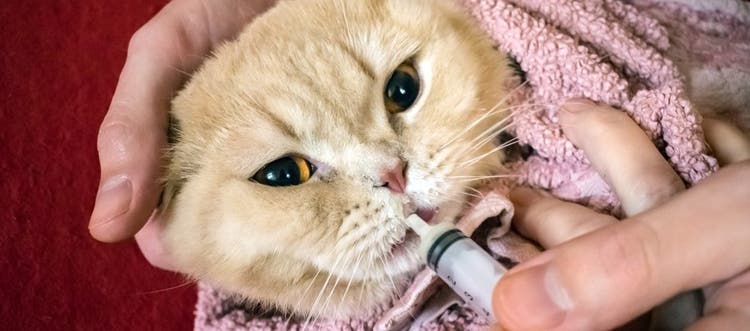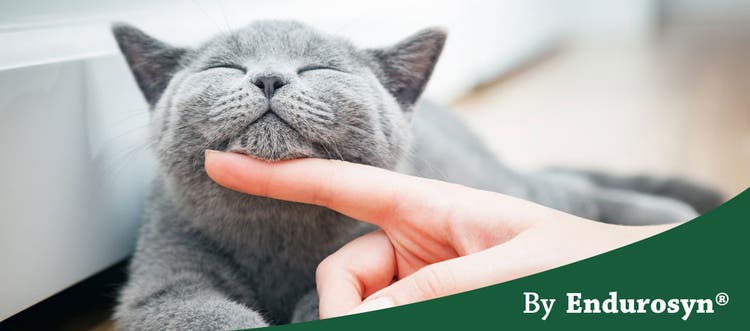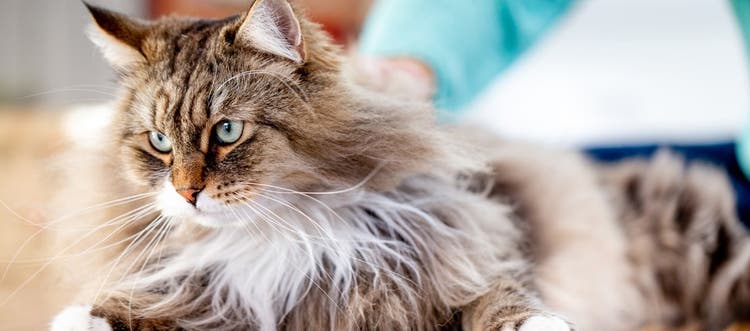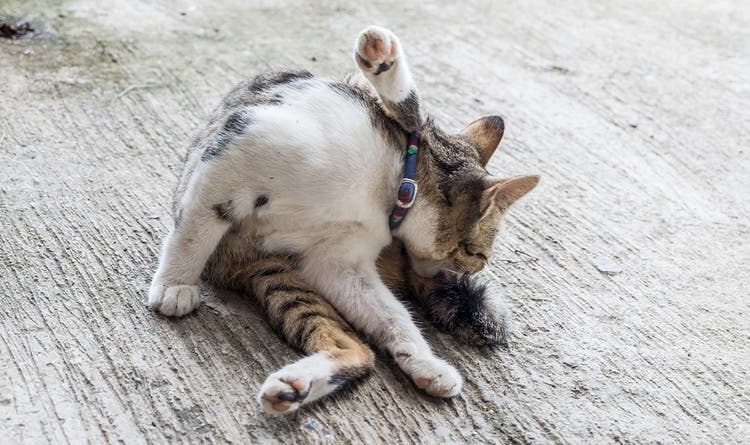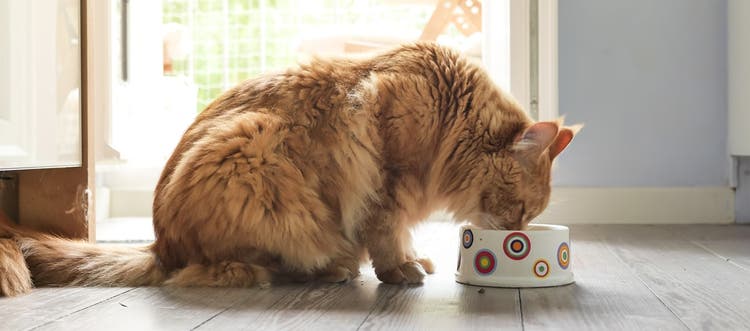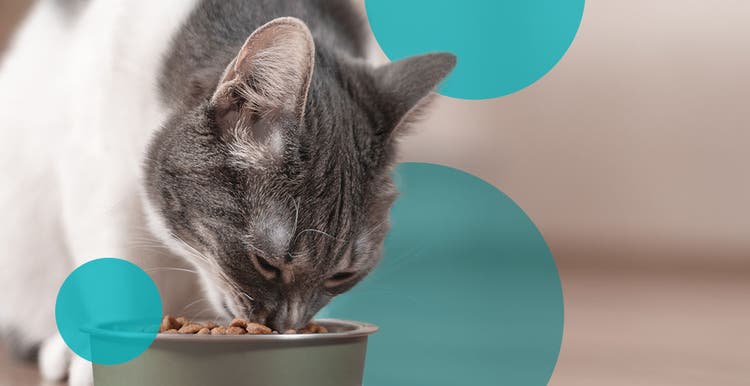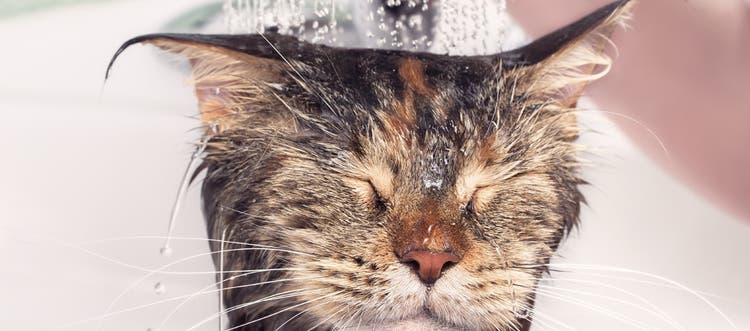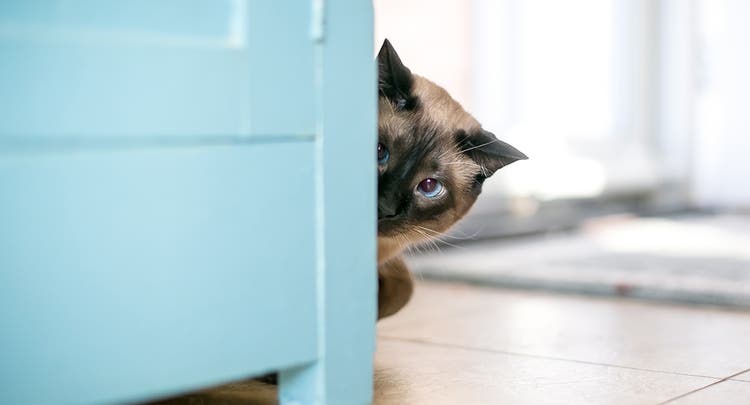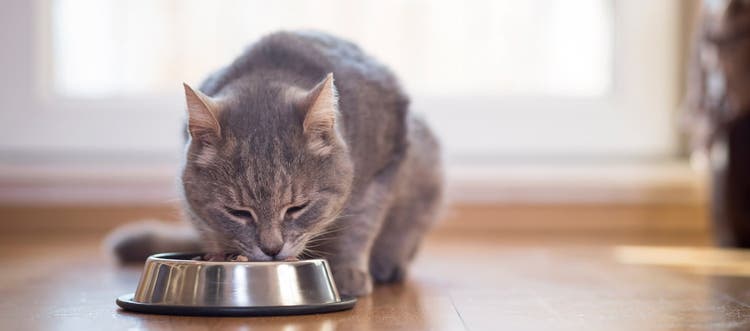Learn how to manage your cat’s diarrhea.
Cleaning the litter box isn’t anyone’s favorite task, but keeping tabs on your cat’s health includes paying attention to their feces — and noting if their stools are runny, loose or watery. Diarrhea, simply defined as a runny stool, is a common issue for cats of all ages. It’s usually not serious, but if it lasts for more than a day or two or is accompanied by other symptoms — particularly a lack of appetite — you should have your cat evaluated by a veterinarian. Here’s the scoop on how to manage your cat’s diarrhea.
Typically, cats defecate one to two times per day, and a normal stool should be somewhat firm and deep brown in color with a distinct shape. If your cat’s feces is loose or watery, increases in amount or frequency, and has a stronger-than-usual odor, it’s diarrhea.
Causes of Diarrhea in Cats
Diarrhea is a sign that the GI tract is off balance and not absorbing water properly. Your cat could have diarrhea for many reasons, but these are the most common culprits:
Stress
Cats are sensitive to stress, and just like humans, they can sometimes demonstrate physical symptoms of stress — like diarrhea.
Diet
Has your cat chewed a plant? Or lapped up water from a puddle? Or have they eaten dairy products, which they can’t actually digest? Have you switched them to a new food recently? Any of the above could cause diarrhea.
Disease
Another common cause of diarrhea in cats is disease. Certain inflammatory disorders like inflammatory bowel disease (IBD) and colitis, thyroid problems and diseases of the pancreas or liver can throw the GI tract off balance and cause diarrhea.
Parasites
Parasites like intestinal worms, including roundworms, tapeworms and hookworms, can cause your cat to have diarrhea. These worms can be treated with deworming products.
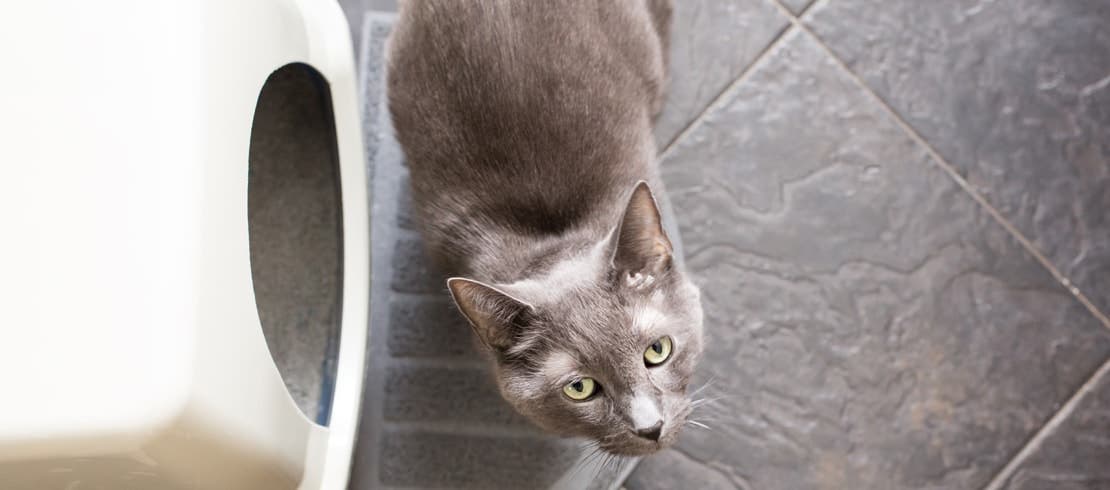
When to Worry about Diarrhea in Cats
Most of the time, cat diarrhea is an isolated incident due to temporary stomach upset and does not require veterinary treatment, but contact your vet if your cat has diarrhea accompanied by any of the following symptoms:
Red or Black Stools
Stools that are red or black instead of brown contain blood, which can signal a more serious health condition.
Vomiting
Vomiting indicates that your cat’s gastrointestinal (GI) tract is irritated and upset.
Abnormal Behavior
If you observe a personality change in your cat — becoming lethargic or hiding, for example — it is likely a sign they are sick or in pain. A cat showing no interest in food, in particular, can be cause for concern. If your cat is behaving abnormally, take them to the vet.
Diarrhea Lasting More Than a Few Days
If your cat experiences diarrhea for more than a few days, they may become dehydrated. Senior cats and kittens are especially vulnerable to dehydration.
Managing Diarrhea in Cats
If your cat has diarrhea without any other symptoms, you might be able to manage it at home. Never give over-the-counter human medications to your cat; instead, try one of the following strategies if your cat has diarrhea.
Feed a Bland Diet
Calm your cat’s digestive system by feeding them bland food in smaller portions and at more frequent intervals than their regular food. Veterinarian offices and specialty pet stores often sell bland diet pet foods, or you can feed your cat soft, bland foods like skinless boiled chicken or turkey, or potatoes and rice. Meat-based baby foods are also an option. Never deny food to a cat with diarrhea for prolonged periods of time, as this will prevent the GI tract from healing; however, do not force a cat that is vomiting to eat.
Try Probiotics
Probiotics are live, beneficial bacteria that aid gut health. Adding a probiotic supplement to your cat’s diet can help keep their GI tract balanced and aid normal digestion.
Encourage Water Consumption
It may seem counterintuitive to give water to a cat with diarrhea, but it’s important to make sure your pet does not become dehydrated. Always supply sources of fresh, clean water for your pet.
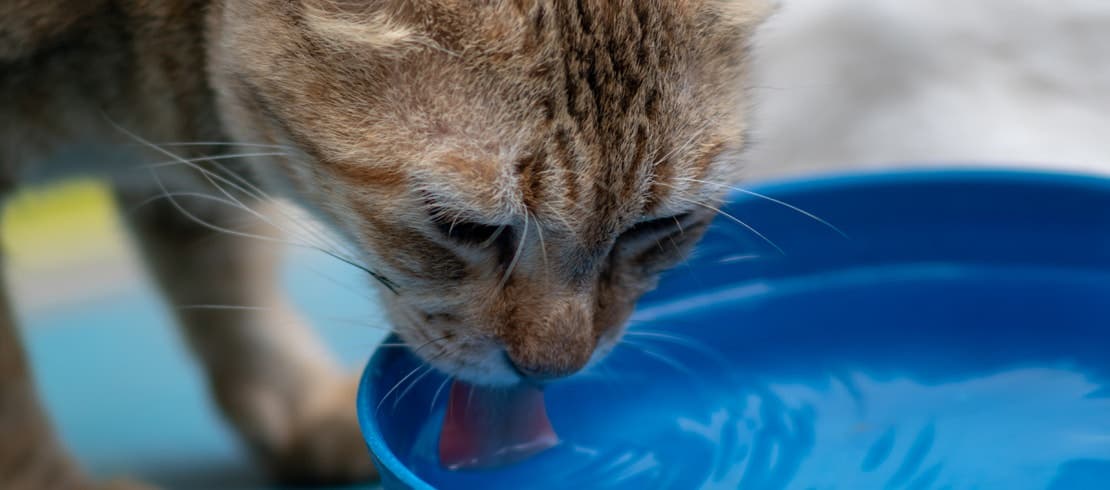
What to Tell the Vet When Your Cat Has Diarrhea
If your cat’s diarrhea doesn’t resolve in two to three days, a veterinarian can provide anti-diarrheal medication or probiotics for cats designed to support digestive well-being and assist in normal digestion. When you bring your cat in, you should be able to tell the veterinarian:
- When the diarrhea started
- What the stool looks like (don’t be afraid to take a photo)
- Any other symptoms your cat has displayed
- Whether your cat has experienced any diet or environmental changes prior to developing diarrhea
- If your cat frequently goes outdoors or hunts small animals
When you make your appointment, be sure to ask your veterinarian if you should bring a stool sample. A fecal examination can rule out many of the causes of diarrhea.
Cat diarrhea is a common issue most cat owners will encounter at some point. Often, the issue will resolve on its own, but be sure to contact your vet if you notice other symptoms or if the diarrhea lasts more than a few days.

Endurosyn® Digestive Health Probiotic Oral Gel for Cats
A three-day probiotic oral gel to promote intestinal well-being during sudden times of stress in cats.

